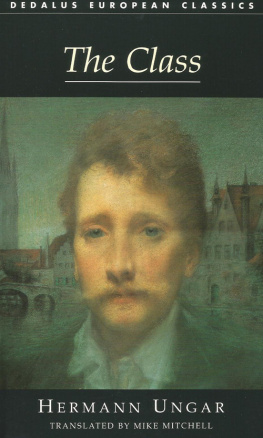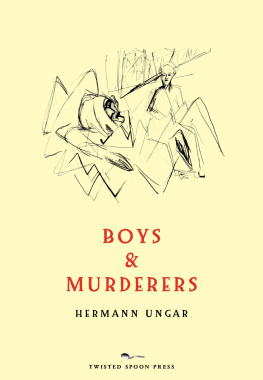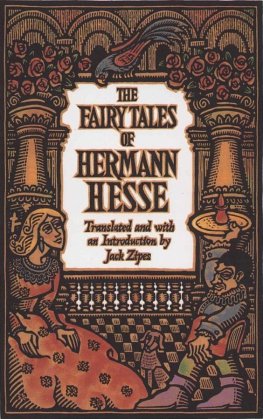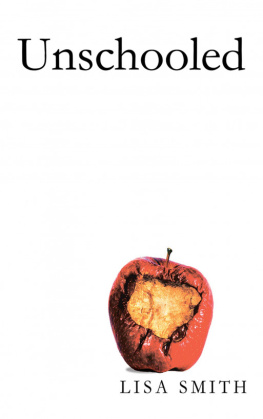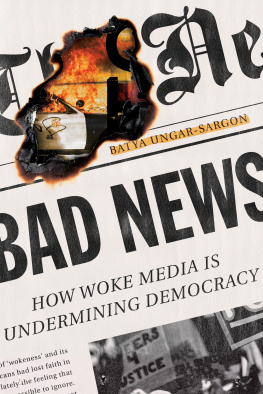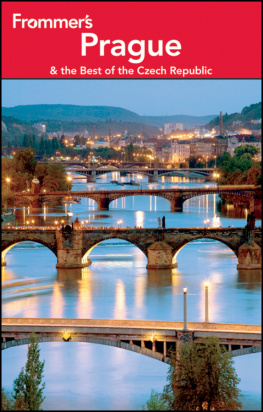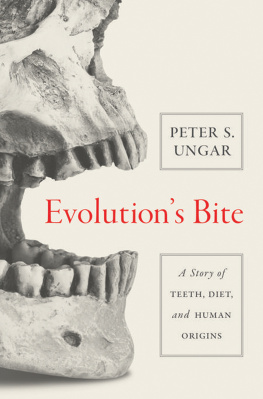Ungar Hermann - The Class
Here you can read online Ungar Hermann - The Class full text of the book (entire story) in english for free. Download pdf and epub, get meaning, cover and reviews about this ebook. year: 1927;2002, publisher: Dedalus, genre: Detective and thriller. Description of the work, (preface) as well as reviews are available. Best literature library LitArk.com created for fans of good reading and offers a wide selection of genres:
Romance novel
Science fiction
Adventure
Detective
Science
History
Home and family
Prose
Art
Politics
Computer
Non-fiction
Religion
Business
Children
Humor
Choose a favorite category and find really read worthwhile books. Enjoy immersion in the world of imagination, feel the emotions of the characters or learn something new for yourself, make an fascinating discovery.
- Book:The Class
- Author:
- Publisher:Dedalus
- Genre:
- Year:1927;2002
- Rating:4 / 5
- Favourites:Add to favourites
- Your mark:
- 80
- 1
- 2
- 3
- 4
- 5
The Class: summary, description and annotation
We offer to read an annotation, description, summary or preface (depends on what the author of the book "The Class" wrote himself). If you haven't found the necessary information about the book — write in the comments, we will try to find it.
Grotesque and unsettling novel about a Czech High School teacher
The Class — read online for free the complete book (whole text) full work
Below is the text of the book, divided by pages. System saving the place of the last page read, allows you to conveniently read the book "The Class" online for free, without having to search again every time where you left off. Put a bookmark, and you can go to the page where you finished reading at any time.
Font size:
Interval:
Bookmark:

Hermann Ungar (18931929) was a German-speaking Jew from Moravia who was active as a writer in Berlin and Prague in the 1920s. Critics spoke of him in the same breath as Kafka, and he was feted in France after the publication of the translation of The Maimed in 1928.
After the war he was largely forgotten in Germany, despite praise from individual writers, but the reissue of the French translation in 1987 was again greeted with enthusiastic reviews: Hermann Ungar is a great writer, unique No history of literature should ignore his works.
Mike Mitchell is one of Dedaluss editorial directors and is responsible for the Dedalus translation programme. His publications include The Dedalus Book of Austrian Fantasy 18902000 and Austria in the World Bibliographical Series.
Mike Mitchells translations include all the novels of Gustav Meyrink, three by Herbert Rosendorfer, three by Grimmelshausen and the Plays and Poems of Oskar Kokoschka.
His translation of Rosendorfers Letters Back to Ancient China won the 1998 Schlegel-Tieck German Translation Prize.
After the publication of his second novel, The Class, in 1927, the main Viennese newspaper, the Neue Freie Presse, called Hermann Ungar the most important writer of the decade. And that in one of the most hectic decades in German literature when, among the younger generation, figures such as Franz Werfel, Joseph Roth, Ernst Toller, Alfred Dblin, Bertolt Brecht, Leo Perutz, Paul Kornfeld, Ernst Weiss, Egon Erwin Kisch were active. Unlike another German-speaking Jewish writer from the region that was to become Czechoslovakia, Franz Kafka, with whom his name is often linked, Ungar was almost completely forgotten in Germany after the Second World War. In France, however, the issue of translations of his two novels and a volume with two short stories in 198788 (the stories and The Maimed had already appeared in France in the 1920s) was greeted with enthusiastic reviews and the recognition not only of his importance in the context of German literature between the wars, but of the abiding power of his portrayal of a world in which all the figures seem to be cripples: physical, psychological, emotional and moral cripples.
One critic, Vincent Ostria, declared that the excesses of punk musicians such as Sid Vicious looked small beer compared to the extremes possible in literature as demonstrated by Ungars novels. Both French and German critics have insisted on seeing in his characters, in which full humanity has been reduced to fear and hatred often the hatred of their own selves an adumbration of figures which in 1933 would step out of literary fiction and into reality.
Hermann Ungar was born in 1893 in the Moravian town of Boskovice, into a wealthy, cultured Jewish family. His father owned a distillery and was mayor of the Jewish community, whose presence in the town went back to the 11th century. Boskovice was entirely Czech-speaking, but the Jewish community until the end of the First World War the two parts of the town were separate spoke German. Ungar grew up speaking both languages, but his education at high school and university was at German institutions.
The routine anti-semitism of some of his German fellow pupils in the high school in Brnn/Brno awakened an interest in Judaism and the Jewish religion, to which he had been largely indifferent until then. He decided to study Hebrew and Arabic in Berlin and joined the Jewish student corporation modelled on the German duelling fraternities, acting as its president in 1914, although by then he had transferred from Semitic languages to Law.
As with many other artists and writers, the war was an experience which fundamentally changed his outlook. He volunteered in 1914 and served for three years in the artillery before being seriously wounded and invalided out. He resumed his studies, completing his law degree at the (German) University of Prague in 1918. But this was a different Ungar. He abandoned the student fraternities, with their duels and colours, and renounced Zionism, which seemed to him in danger of becoming a new kind of nationalism.
He also seems to have thrown away or destroyed all his early writings, plays full of passion, violence and intrigue. It had always been Ungars ambition to be a writer and for a short while he worked in the theatre in Eger/Egra, hoping it would be a milieu conducive to writing, but after a short time took a position in a bank. This led to work for the Czech Export Agency in Berlin and finally, in 1922, a post as commercial attach at the Czech embassy there. Though the work was not particularly congenial to him, the Czech foreign ministry treated him generously, apparently pleased to encourage a man making a name for himself in German literature. (A press attach at the embassy was another Czech-German writer, Camill Hoffmann.) In 1928 he was moved to the foreign ministry in Prague; on 10 October 1929 he resigned from his post; on 28 October he died of peritonitis after an appendix operation.
The works he wrote around the end of the war did not reach the public: a novel has disappeared and a play called Krieg (War) was not published until 1990. Two stories, gathered together under the title Knaben und Mrder (Boys and Murderers), appeared in 1920. The Maimed was published in 1923, to a reaction of horrified admiration, and his second novel, The Class in 1927. In 1928 his play Der rote General (The Red General) was performed with great success in Berlin. The central figure is a Jewish general who is abandoned by the Communists, once he is no longer needed, and executed by the White Russians. Some saw it as a portrait of Trotsky, which Ungar denied. A second play, a comedy called Die Gartenlaube (The Arbour), had its premiere six weeks after his death.
The main character of The Class, Josef Blau, is a school-teacher who comes from a poor background, but teaches at a high school in a wealthy part of the town. Faced with a class of well-dressed, well-groomed pupils, he feels insecure. He is convinced they despise him and the rigid discipline he imposes on them is designed to prevent what he assumes is the contempt they feel for him from breaking out in rebellion. Just as Polzer, the hero of The Maimed, feels that Once the order had been disrupted, ever increasing chaos was bound to follow, so Blau fought with all the means at his disposal to maintain discipline. Once it was relaxed, everything was lost.
But Blaus rigidity is not merely a reflection of his social insecurity. It goes much deeper than that and informs his whole existence, public, private and personal. He believes our lives his especially are inextricably interwoven with others and subject to a fate which can be brought down on us by the slightest act: a movement, a word, even just breathing. His whole life is little more than an attempt to ward off, or at least delay what he sees as the inevitable. Everything he does may have consequences, for himself or for those around him, and therefore he feels everything he does involves him in guilt.
This attitude seems to be confirmed when the one positive action he takes leads to tragedy. He waits outside a brothel he has been told the pupil whom he regards as his chief enemy visits. He sees two pupils there and goes away believing he now has them under his control. For a short while he is transformed from the timid mouse into a masterful male. But one of the two boys commits suicide as a result of having been seen at the brothel, plunging Blau back into self-recrimination which erupts physically in a haemorrhage, a hereditary weakness.
Next pageFont size:
Interval:
Bookmark:
Similar books «The Class»
Look at similar books to The Class. We have selected literature similar in name and meaning in the hope of providing readers with more options to find new, interesting, not yet read works.
Discussion, reviews of the book The Class and just readers' own opinions. Leave your comments, write what you think about the work, its meaning or the main characters. Specify what exactly you liked and what you didn't like, and why you think so.

